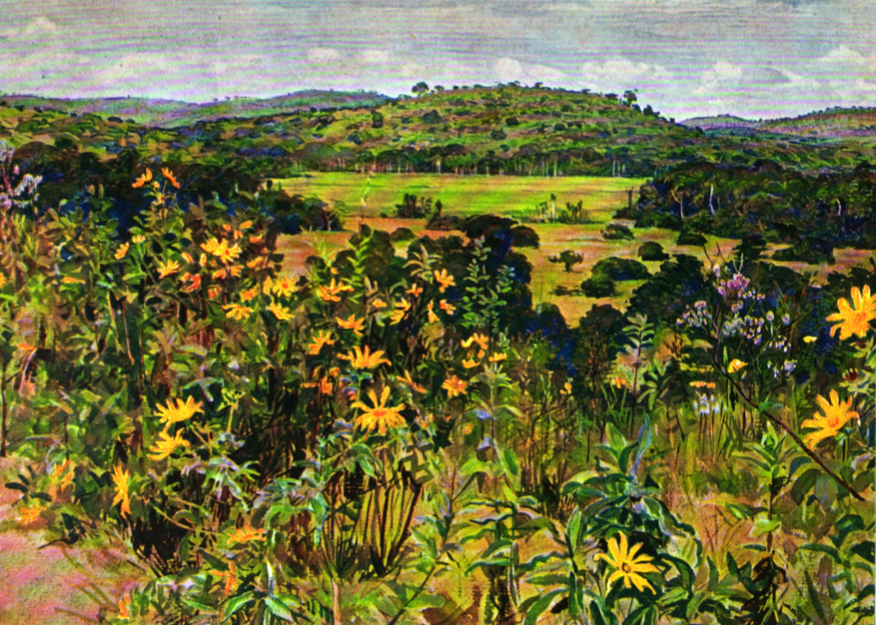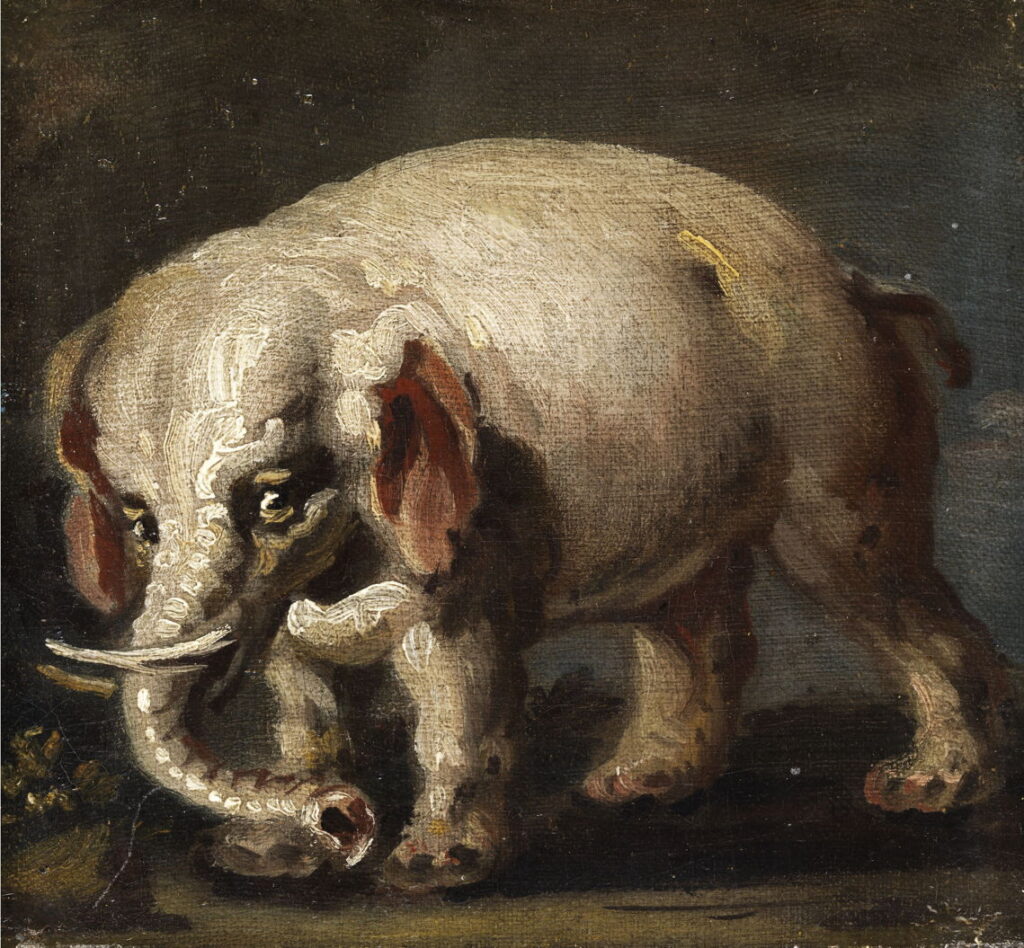The Bird and the Elephant
By Anonymous
Annotations by Rene Marzuk

(Original byline: Stories Collected by Sir Harry H. Johnston in his “Uganda Protectorate.”) [1]
Just as the season for sowing grain was drawing near, the bird and the elephant met, and became involved in an argument as to who had the bigger voice. The dispute getting heated, they decided to lay the question before the big assembly. “We have come,” piped the little bird, “to have the question settled as to who has the bigger voice, my friend the elephant or myself?” “Yes,” grunted the elephant, “this insignificant little thing has the impudence to say his little squeak is more powerful than my trumpeting.” “Well,” said the little bird, “our homes are two hours away. Do you think that, if you bawled your loudest, your people would hear you call from here?” “Of course,” sneered the elephant; “but what do you think you are going to do, you puny little thing?” “Now, don’t get angry,” chirped the bird. “Tomorrow morning we will meet at dawn, and both call to our friends to have our dinner ready; but, as you sneered at me, we will make the stakes ten cows, to be paid by the loser to the winner.” “Right you are!” chuckled the elephant. “I want some more cattle. Good-bye, you little fool!” and went off laughing. The bet was confirmed by the “baraza.” The cunning bird at once made arrangements. He got his mates to perch within hearing distance of each other along the line to his house. “Now we will see,” said he, “how wit can triumph over brute force.” At dawn the next morning they met as agreed. The elephant was given “first try,” and bawled four times in his loudest voice. “Have you quite done?” chirped the little bird. “Yes,” sneered the elephant; “squeak away.” The little bird gave his orders, and they tramped off together. They decided that the elephant being the bigger, they would visit his home first. As they drew near, the elephant became uneasy at the quiet that reigned, and was extremely angry to find not a soul about. One was away getting food, another drawing water, another gathering firewood, and the rest, not expecting anything to occur, were also out. “Now,” said the bird, “we will try my luck.” As they approached they heard great sounds of bustling; the pathways were clean, the courtyard swept, the bird’s friends were all neatly arranged in lines to do honor to the guest; mats were laid down in the house, and an abundant feast was prepared. “Ah, my friend,” piped the little bird, “do not be down-hearted. Be thankful you have learnt at so small a cost not to despise a rival, however small he may be. So now let us ‘eat, drink, and be merry.’” Next day the elephant handed over the cattle to the bird.

“THE BIRD AND THE ELEPHANT” THE CRISIS’ VOL. 16, NO. 6 (OCTOBER 1918): 271-72.
[1] Uganda was a Protectorate of the British Empire from 1894 to 1962. Sir Henry Hamilton Johnston (1858-1927), also known as Harry Johnston, worked as a colonial administrator of the Uganda Protectorate from 1899 to 1901. Johnston was also an explorer, botanist, zoologist and artist. His book The Uganda Protectorate was first published in 1902.
Contexts
Starting in 1912, the October issues of The Crisis, the official magazine of the NAACP, were dedicated to children. A typical edition of these children’s numbers would contain a special editorial piece and two or three literary works specifically for children, while still including the serious pieces about contemporary issues with a focus on race that The Crisis was known for. These October numbers were sprinkled with children’s photographs sent in by the readers.
In his first editorial for the Children’s number in 1912, W. E. B. Du Bois wrote that “there is a sense in which all numbers and all words of a magazine of ideas myst point to the child—to that vast immortality and wide sweep and infinite possibility which the child represents.”
The success of The Crisis’ children’s number led to the standalone The Brownies’ Book, a monthly magazine for African American children that circulated from January 1920 to December 1921 under the editorship of Du Bois, Augustus Granville Dill, and Jessie Fauset.
Definitions from Oxford English Dictionary:
baraza: (East African) A meeting, assembly, or council. In early use also: a reception room.
Contemporary Connections
Elephant poaching due to elephant ivory demand is a major environmental concern in Africa.
The Kataara Women’s Poverty Alleviation Group (KWPAG), a small community project in Uganda, promotes the creation of crafts with paper made out of elephant dung. This project seeks to combat elephant poaching, which “during the political turmoil of the 1970s and 1980s . . . decimated the elephant population in Uganda . . . from an estimated 30,000 elephants to less than 800.”
Video on how poachers threaten the survival of the African elephant.